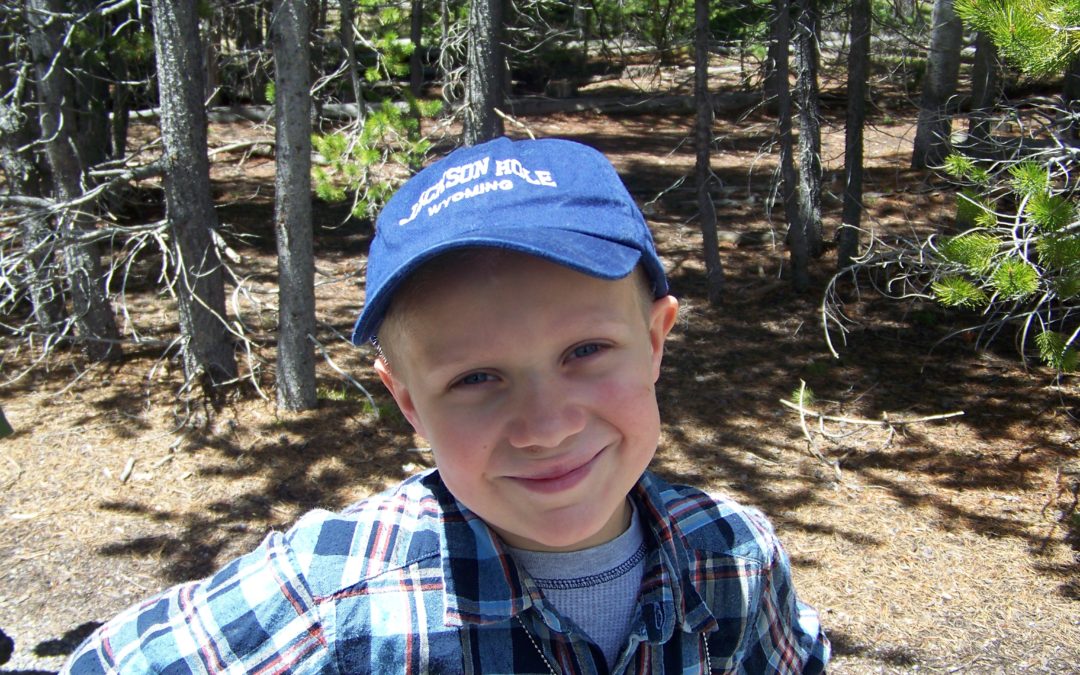
by Misty Phillip | Jul 13, 2022 | Podcast
Podcast: Play in new window | Download (Duration: 21:28 — 19.7MB)
Subscribe: Apple Podcasts | Spotify | Amazon Music | Android | iHeartRadio | Blubrry | Podcast Index | Email | Deezer | | More
On this episode of the By HIs Grace podcast, Misty Phillip sits down with Molly DeFrank, the founder of the online Digital Detox, where she helps free families from their addictions to devices. We talk about detoxing from tech, the numbing out of dopamine levels, giving our kids a love of reading, the science behind the detox. Learn to be technology in its proper place.
Molly has a degree in international relations and worked as a press aide for former California governor Arnold Schwarzenegger. These days, she is a stay-at-home mom and foster mom to six kids ages twelve and under.
Key Takeaways
“It’s like flipping the switch. You get your kids back, they’re happier, they are calmer, they get along better, and they’re more creative”
Reset Dopamine levels.
Parents are in charge of their kids.
Bring your kids in on the conversation.
Two week digital detox….A simple two-week tech reboot can change everything. It refreshed, renewed, and transformed Molly DeFrank’s kids. Her new book explains how she did it and you can, too.
Digital Detox – Why should I do it?
If digital entertainment has an unhealthy hold on your children, if they’re grumpy
or throw tantrums after screen time or are glued to their devices and bored by
everything else, a digital detox is for you. Total removal of all digital entertainment is a tested and proven way to get back into the driver’s seat when it comes to screen time in your home. Apps and games are engineered to release excessive amounts of dopamine in our kids’ brains. Post-screen tantrums are related to dopamine crashes. Your detox recalibrates the dopamine levels in your kids’ brains.
How do I do it?
Two weeks, zero digital entertainment. In two weeks, you can UNDO the tech trance. Unplug, cold-turkey. Notice your kids’ giftings, areas for improvements, and interests. Develop a list of screen free fun ideas. Open the books! Gently nudge your most reluctant readers into reading for pleasure. Using your observations during the detox, you will create a long-term plan where technology serves as a tool for you, rather than the other way around. Your plan will use the best parts of tech, and ditch the stuff that caused undesirable behaviors in your kids. The goal is to put screens back in their right place in your home. The detox is the bridge to the results you crave.
Does it really work?
Our detox resolved a substantial amount of our parent/child conflicts. It turned our non-readers into bookworms. It revealed new interests to hone. It gave our family a fresh start. Moods improved dramatically. Our daughter skyrocketed five grade levels in reading over several months.
I’ve coached many families through their own detoxes. All of them shared incredible results. We heard things like: “We have so much more time to connect as a family”, “Fighting is at an all-time low”, “My girls have stopped asking for iPads and started doing other activities,” and “Molly—I have new kids.” The detox is simpler than parents could hope, and change is more dramatic than they can imagine.
When is the best time to begin?
A long weekend or extended vacation is ideal, or whenever both parents can be home. One fun option is to kick off a detox with a camping trip, where no internet reception is available. That said, there is no perfect time to begin. So if you can’t start on a weekend or the idea of camping makes you want to cry, just get your spouse on board and then pick a date on your calendar. Any day that ends in “y” will do.
Are you sure I can do this?
Not only are you detox candidates, but we are also kindred spirits. I happen to enjoy living life by the seat of my pants. Give me some broad principles and let me live the day as it comes. If you are this way, you can absolutely detox—and with wonderful results. I do recommend having several ideas ready for when things get wild (screamers in a store, fighting in the car at the drive-up pharmacy, etc.). Have your stacks of library books, your mental ideas for screen-free fun, and plenty of conversations with your spouse about observations and ideas. You do not have to check every box in this book for your detox to be effective. You do need to stick to its principles.
ABOUT THE BOOK
DIGITAL DETOX: It’s time to flip the switch and get your kids back.
Mom of six, Molly DeFrank was sick of screen-time meltdowns. She wanted more for her family, so she pulled the plug, declaring a digital detox for her kids. The transformation blew her away. She got her sweet, happy kids back. The detox was easier than she could have hoped and the results were better than she could have dreamed. In just two weeks, her children were free from the grip of digital devices. Their moods shifted immediately and their creativity exploded. They learned how to entertain themselves and enjoy life without screens.
Her experiment led to a total tech overhaul that changed her family’s life. The book details how she did it in just fourteen days, and how readers can, too.
WHY IS IT RELEVANT?
As if parenthood weren’t stressful enough, parents in 2022 are wading through entirely new challenges that didn’t exist for any previous generation. We are drowning in digital entertainment and distractions. Kids are literally addicted to and spend HOURS each day staring at screens and taking in images and messages – from who knows where.
On average, children ages 8-12 in the United States spend 4-6 hours a day watching or using screens, and teens spend up to 9 hours (
Studies show that 93.6% of Americans significantly increased their screen time in 2020-2021.
I
f parents don’t take a moment to clarify the role they want tech to play in their homes, it will continue to seep in and monopolize, stealing the moments, days, and years meant for connecting with, training, and forming their kids’ hearts and worldviews.
Parents are having vastly fewer conversations with their kids, resulting in disconnection and distance in their relationships and loss of influence.
Resources
Digital Detox: The Two-Week Tech Reset for Kids
Connect with Molly
Molly DeFrank Instagram

by Misty Phillip | Jan 22, 2020 | Podcast
Podcast: Play in new window | Download (18.8MB)
Subscribe: Apple Podcasts | Spotify | Amazon Music | Android | iHeartRadio | Blubrry | Podcast Index | Email | Deezer | | More
The Mother and Daughter relationship isn’t always an easy one. I have experienced this first hand with my mother and from friends who are struggling with their daughters. Tensions can arise especially in the teen years that can make the mother/daughter relationship difficult. This week on By His Grace we talk about the mother-daughter relationship, challenges, and how it can be repaired by God’s grace.
My guests this week are the mother and daughter author team Helen McIntosh and Blythe Daniel that penned the book, Mended: Restoring the Hearts of Mothers and Daughters. They share wisdom and hope based on their own experiences as mothers and daughters.
Growing up, Dr. Helen McIntosh shared few loving moments with her mother. Her mother battled anxiety, anger, and alcoholism, while Helen struggled to fend off her verbal and emotional abuse. After Helen became a Doctor of Counseling Psychology, she helped other women scarred from toxic mother-daughter relationships. Once her own daughter Blythe grew up and left home, Helen longed to maintain a good relationship with her.
Today, Helen and Blythe, who is a mother of two daughters, have a close and healthy mother-daughter bond achieved through effort and repairs. In Mended: Restoring the Hearts of Mothers and Daughters, they share how they’ve built, guarded, and renewed a relationship-centered around talking, respecting, and listening. “No mom or daughter wants to walk a dark path of uncertainty, a strained relationship, or a gulf between you that feels too difficult for you to cross,” says Blythe, knowing how common unstable and unfinished relationships are. Mended walks readers through the steps to reconciliation and includes specific conversations that guide mothers and daughters towards openness, grace-filled confrontation, and restoration.
Blythe Daniel is a literary agent and marketer with 20 plus years of experience in publishing. She has written for Christian Retailing and Focus on the Family, and she links bloggers with readers through BlogAbout. The daughter of Dr. Helen McIntosh, she lives in Colorado with her husband and three children.
Dr. Helen McIntosh (EdD, Counseling Psychology) is a counselor, speaker, educator, and author of Messages to Myself and Eric, Jose & The Peace Rug®. Her work has appeared in Guideposts, ParentLife, and HomeLife magazines. She resides in Georgia with her husband Jim. They have two children and five grandchildren.

by Misty Phillip | Sep 28, 2019 | Featured
There is nothing more heartbreaking than seeing our children struggle. I know firsthand the difficulty of caring for a special needs son. Regardless of whether is a spiritual attack, a physical ailment, or emotional struggle, the struggle is real and can spark a myriad of emotions from fear to isolation.
This week on the podcast Tammy Kennington and I discuss the difficulty of having a child who suffers from mental illness, and the hope we have in Jesus that gets us through. Please welcome Tammy to By His Grace.
I Never Expected My Son to Experience Mental Illness
by Tammy Kennington
The run-of-the-mill, plastic shopping bag twisted in my sweaty hand as a sharp bell alerted the security guard to my presence. Glancing at the ID I slid through the narrow window, he pushed a button and the door slowly opened. My rubber-soled shoes move soundlessly toward the front desk, but my heart beat a rapid tattoo.
Your son is in the hospital. Your son is in the hospital. Your son is in the hospital.
“My son had asked for a few things,” I muttered numbly to a nurse at the front desk.
“Well, you can’t give him a plastic bag.” I hadn’t thought of something as mundane as a plastic bag being a possible danger. Dumping the remaining items on the table, he continued. “Alright…no clippers. Bible. No shoes—they have laces.”
I was stunned.
I’d never expected the gregarious, smiling baby boy I’d once known to ever struggle with depression. I could never have anticipated the midnight phone call from a suicide hotline volunteer calmly sharing my son had a plan to end his life. I would never have imagined praying over my boy as I clung desperately to the hope that a bed might become available; I’d be assured of his safety for just a few days.

The Thief of Mental Illness
Mental illness is a stealthy thief. It creeps into some lives as an acceptable, common illness like generalized anxiety. But for others it burglarizes much more than peace of mind. It has the capacity to fill the mind with racing thoughts, panic attacks, soul-sapping-depression, or moods that swing from one extreme to the other.
And when mental illness effects a child, it impacts the family.
Parents wonder what they could have done differently. They blame genetics or find fault with their approach to discipline. Siblings struggle to understand the behaviors, choices, and illness of their brother or sister. Grandparents, aunts, uncles, and other well-meaning relatives offer unsolicited advice, tips, and techniques.
And in the midst of it all? The child or youth struggling with mental illness often feels broken, less than, and ashamed.
Trusting God with Your Child
Oh, the grief that engulfed my heart while my son trudged through the painful valley. Many of my mama-crafted dreams were shattered when I realized the depth of my son’s emotional pain and struggle. But in their place, I’ve begun to understand surrender. I began claiming Jeremiah 29:11 (NIV) for my child and trusting Him to fulfill its promise. “For I know the plans I have for you,” declares the Lord, “plans to prosper you and not to harm you, plans to give you hope and a future.”
On the long and harrowing days. On the days when my patience is thin and I wonder how a young man with a hurting heart will be successful in a world that doesn’t understand.
Seeking Help
We need community in all areas of our lives and support with mental illness is no different. The child with mental illness needs a team of supporters, but remember to include safe people who can provide support for you, as well. One or two trustworthy friends, a group in the community, or church members who understand your situation will prove invaluable prayer partners and confidantes when you need a listening ear.
Be an Advocate for Awareness.
Be an Advocate for Your Child.
As you begin to accept your child’s diagnosis, learn more. Research. Join online groups. Become your child’s best advocate within the school system, at church, and in other areas of his or her life. Teach your child what it means to advocate and begin to teach others about mental health. We can make a difference for our children by doing our small part!
Pray Without Ceasing
1 Thessalonians 5:17 exhorts, “Pray without ceasing.” Perhaps God will heal your child and mine this side of heaven through our prayers. If not, we need to pray against anxiety, rage, fear, and all of the emotions that threaten to unsettle our children and our homes and ask Him to fill each of us with peace, patience, and love as we minister to our loved ones through the power of the Holy Spirit.
This is our opportunity, friends, to love well in the midst of the hard. We’ll grow weary. We’ll stumble. But we can look to the One in whom we know all things will one day be fully restored.
“In his kindness God called you to share in his eternal glory by means of Christ Jesus. So, after you have suffered a little while, he will restore, support, and strengthen you, and he will place you on a firm foundation.” (1 Peter 5:10) NLT
Peace and grace, Tammy
So thankfful to have Tammy Kennington as a guest ths week. If you are a parent of a child with mental illness I hope this post encourages you. Be sure to listen to this week’s podcast with Tammy Kennington: Parenting Mental Illness for more encouragement.

by Misty Phillip | Sep 21, 2016 | Christian Living, Faith, Fatherhood, Featured, heart, Life, Motherhood, Parenting
Recently, I was contacted by a friend about how to establish and nurture a healthy relationship with our boys. Over the years, she has watched the way we have raised our boys and has admired our ability to reach them.
I wish I could say, if you do X, Y, and Z, then your kids will turn out perfectly, but that is not the case. Each child comes with their own unique set of abilities, personalities, and temperaments. What works for one child may not work for another.
Prayer
What I do know is that each child is a blessing from the Lord, and He knows our children even better than we do. Pray for your children. Pray for wisdom in reaching their heart, pray for how you may best nurture that child specifically. Pray for your relationship with him, and pray for his relationship with the Lord. One of the greatest joys that I have had as a parent is sharing the love of God with my children, and leading them to Christ.
I once met a woman who remarked how similar my son was to her son. I knew her son, not as a boy, but as a grown man. I have a tremendous amount of respect for this man, and so I asked her what I should do with my son, so he would turn out like her son. I will never forget the response of this wise woman. She said, “Wear your knees out in prayer!” What great advice! It is not only our privilege and a joy to pray for our children, but it is a necessity. We live in a fallen and sinful world, and the enemy wants to destroy our boys.
In John 10:10 we learn, “The thief comes only to steal and kill and destroy. I came that [you] may have life and have it abundantly.” Praise Jesus! He came that we may have an abundant life!
Be Intentional
Raising boys who become men who love the Lord doesn’t happen by accident. Having your son’s heart requires intentional parenting. Making wise choices about what our children are exposed to is also very important – cultivate a love of whatever is noble, true, and right. Expose them to good literature and stories about heroes of the faith. Be mindful of what they see on television, computer screens and video games. Emphasize purity of mind, and thought, and deeds.
Finally, brothers, whatever is true, whatever is honorable, whatever is just, whatever is pure, whatever is lovely, whatever is commendable, if there is any excellence, if there is anything worthy of praise, think about these things. – Philippians 4:8 ESV
I think a popular children’s bible song says it best: O be careful little eyes what you see, be careful little ears what you hear, be careful little hands what you do, be careful little feet where you go and be careful little mouth what you say.
Parenting our boys sometimes requires us to make unpopular or counter-cultural choices that are in their best interest. This is why prayer is so necessary so that we can know what is best for our family, and for each individual child.
Communication is Key
Keeping lines of communication open is vitally important. Time spent around the family dining table talking about anything and everything is a great tool for discipleship. We talk to our kids about everything, and we have always encouraged them to communicate honestly with us. As our boys have grown, we have had many important conversations until late at night. I think a huge part of having your child’s heart comes from good communication. I want to make myself available to them, whenever they want to talk.
My friend indicated that she felt like she was missing the mark in reaching her 12-year-old son’s heart. Junior high can be a challenging age! Our once sweet little boys become full of testosterone and start to become men, and they begin to change. Our roles as mom change also, as they pull away from us. It is our job to continue to love, nurture, and pray for them as they become the men God has created them to be. When boys hit junior high age, it is important for the father to become more involved in leading and disciplining his son.
Hard Work and Purpose
Boys require hard physical work. It is good for boys to work hard physically, either in playing sports or manual labor of some kind. I always joke that boys are easy: just feed them well, put a ball or a shovel in their hands, and let them go. They need physical work, but they also crave purpose in their lives and should be challenged intellectually. This will look different for each of us, which is why we should pray for wisdom specifically for each child.
You may also like Wisdom for Parenting Teens and Young Adults
Book Recommendations
There are many good books on parenting. The most important book is The Bible – we must teach them to know and love the Lord and the Word of God. The Bible is our instruction book for life. In addition to the Bible, listed below are some of the books that I have found helpful in raising my boys.
Created for Work, Practical Insights for Young Men – Bob Schultz
Shepherding a Child’s Heart -Ted Tripp
The Power of a Praying Parent -Stormie Omartian
The Ministry of Motherhood and The Mission of Motherhood – Sally Clarkson
Keeping our Children’s Hearts – Steven and Teri Maxwell
Hints on Child Training – H. Clay Trumbull
Bringing Up Boys – Dr. James Dobson
Parenting Beyond the Rules – Connie Albers
Prayerfully this will encourage my friend, and anyone else struggling to reach the heart of their son. What are some other things that you have found are helpful in raising boys? I would love to hear from you.
Much Love,






Recent Comments